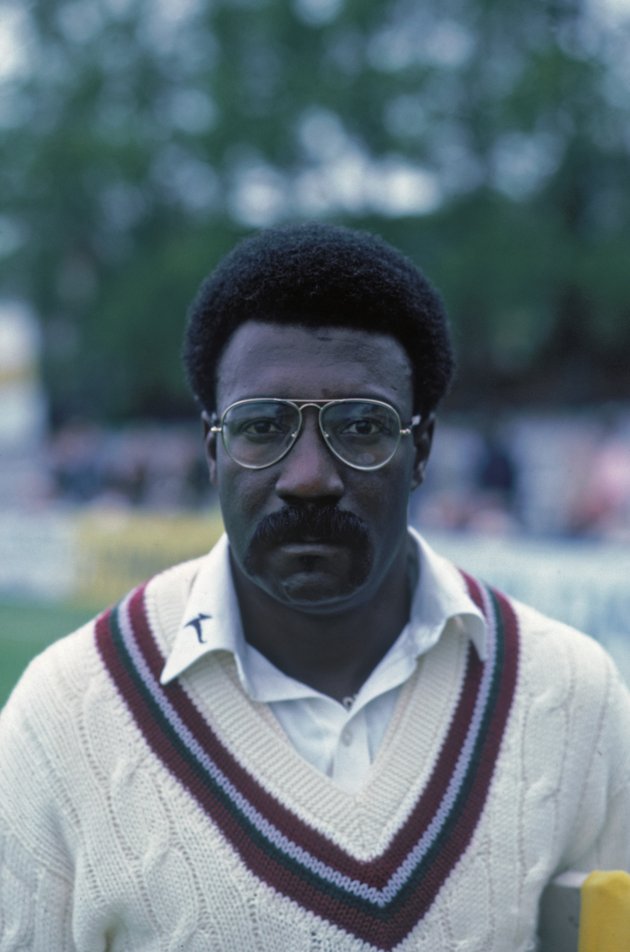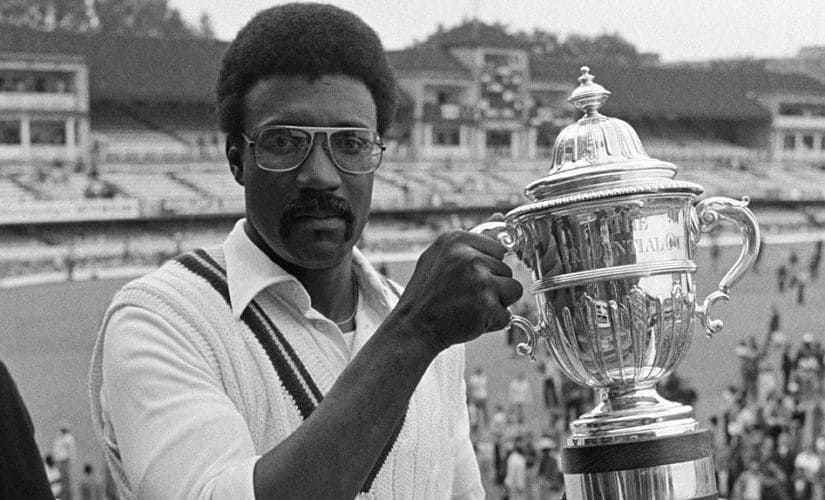As West Indies cricket rose from tentative post-colonial roots into an emerging world power, Clive Lloyd shepherded the transition as tactical leader and batting lynchpin, catalyzing an ascendant era beneath his stoic gaze and defiant stroke play.
Lloyd melded natural athletic gifts with shrewd situational awareness when assuming the captaincy in 1974. Understanding intrinsic talent required nurturing, Lloyd stewarded a crop of prodigies toward a competitive zeal fusing personal flair with team strategy execution.
Fearsome quicks thus operated with autonomy within structured plans – finding a formidable leader who had weathered racism himself to now marshal a cultural reckoning.
Article Highlights
Hide- Clive Lloyd was born in Georgetown, British Guiana (now Guyana) and had a strong passion for cricket from a young age.
- He made his debut for the West Indies in 1966 and quickly established himself as a talented middle-order batsman and occasional medium-pace bowler.
- As captain of the West Indies team, he led them to victory in the 1975 and 1979 World Cups, revolutionizing the game with his strategic acumen and promoting aggressive batting and formidable fast bowlers.
- Lloyd's impressive career included scoring 7,515 runs in Test cricket at an average of 46.67, with 19 centuries, and he maintained a high batting average in a competitive era.
Beyond the trophies and statistics amassed during his reign sits Clive Lloyd’s broader influence upholding West Indian cricket’s legacy. His very persona reminded of humble beginnings overcome by the will of many. Even off the pitch in later days, Lloyd applied this same pride to governance roles guiding cricket’s safekeeping.
In many respects, the name Clive Lloyd occupies nexus between past and future. His on-field leadership helped ignite an era while principled guidance pressed long afterwards – a legacy now spanning generations.
Early Life and Background
Clive Lloyd, often regarded as one of the greatest cricketers of all time, was born on August 31, 1944, in Georgetown, British Guiana (now Guyana), into a family where cricket was a cherished pastime, laying the foundation for what would become an illustrious career in the sport.
His early exposure to cricket within a familial context provided a fertile ground for nurturing his innate talent. This early domestic backdrop, coupled with the cricketing culture of Guyana, played a pivotal role in shaping his formative years and future trajectory.
Alec Bedser
In post-World War Two England, Alec Bedser embodied cricket’s restorative power, his resurgent ... Read More
As Lloyd matured, he exhibited a natural aptitude and profound understanding of the game, which were honed through disciplined practice and local competition. His early life in Guyana, characterized by the prevalent British influence on the sport, instilled in him a deep appreciation for the game’s history and traditions.
The socio-cultural environment of post-colonial Guyana also contributed to his cricketing ethos, blending a strong community spirit with competitive sportsmanship.
This period of Lloyd’s life, although less documented than his professional career, was critical in developing the skills and attributes that would later define his cricketing philosophy.
His early background, therefore, is not merely anecdotal but foundational, having equipped him with the physical and mental fortitude necessary for ascending to the zenith of international cricket.
Clive Lloyd: Rise to International Cricket
Building upon the robust foundation laid during his youth in Guyana, Lloyd’s ascent to international cricket began in earnest when he was selected for the West Indies team in 1966, marking the commencement of a distinguished and transformative era for himself and Caribbean cricket.
His debut on the international stage was not merely a personal milestone but a harbinger of the extraordinary impact he would come to exert on the sport.
The analytical purview of Lloyd’s early international career reveals a player who combined sheer physical prowess with a keen cricketing intellect.
His ability to adapt to the rigors of international competition was indicative of his potential to not only excel individually but also to elevate the standards of West Indian cricket as a collective.
| Year | Significant Milestone |
|---|---|
| 1966 | West Indies Debut |
| 1971 | First Test Century |
| 1975 | World Cup Victory |
These milestones represent pivotal moments in Lloyd’s career trajectory, each contributing to the fabric of his legacy. His first Test century in 1971 underscored his batting credentials, while the 1975 World Cup victory, under his captaincy, signified a watershed moment for West Indies cricket, establishing them as a dominant force on the global stage.
Captaincy and Global Dominance
Assuming the mantle of captaincy in 1974, Lloyd steered the West Indies team to an era of unprecedented global dominance, revolutionizing the game with strategic acumen and charismatic leadership.
Under his captaincy, the West Indies did not lose a Test series for 15 years, a record that remains unparalleled. This period saw the Caribbean side not only excel in the game but also transform it through a distinctive combination of aggressive batting, athletic fielding, and, most notably, a formidable quartet of fast bowlers.
Lloyd’s captaincy was marked by a keen understanding of the psychological aspects of cricket. He nurtured an environment where players such as Viv Richards, Gordon Greenidge, and Michael Holding could thrive, imprinting an aggressive yet calculated approach to the sport.
Lloyd’s decision to deploy a relentless pace attack challenged conventional strategies and exploited the physical and mental vulnerabilities of opponents.
The West Indies’ overwhelming success under Lloyd included two consecutive World Cup victories in 1975 and 1979, cementing their status as the zenith of cricketing excellence.
Lloyd’s tenure as captain, therefore, was not merely about maintaining a winning streak; it was about setting new standards of excellence and instilling an enduring legacy.
Clive Lloyd: Career Milestones and Records
Reflecting on Lloyd’s tenure as captain, his individual career milestones and records stand as a testament to his prowess and influence in the game of cricket.
Lloyd’s career, punctuated by superlative performances, is highlighted by numerous records that underscore his dominance. His commanding presence on the field was matched by his batting might, which saw him amass 7,515 runs in Test cricket at an average of 46.67, including 19 centuries—one of which was a monumental innings of 242 not out against India in 1975.
In One Day Internationals (ODIs), Lloyd was no less impressive, tallying 1,977 runs and playing a pivotal role in West Indies’ World Cup triumphs in 1975 and 1979.
His unbeaten 102 in the final of the inaugural World Cup remains etched in history as one of the most defining innings in the format.
Analytically, Lloyd’s statistical output must be contextualized within the era he played—a period characterized by fierce fast bowling and competitive batting conditions.
His ability to maintain a high batting average while leading a team to consistent victories is indicative of his exceptional skill and mental fortitude.
Lloyd’s records not only reflect his individual excellence but also the zenith of West Indies cricket under his stewardship.
Legacy and Influence
Clive Lloyd’s indelible legacy in the realm of cricket extends far beyond his impressive statistics, shaping the sport’s narrative through his innovative leadership and enduring influence on future generations. His contributions are crystallized within several key aspects:
- Pioneering Leadership Style: Lloyd’s captaincy broke new ground in terms of strategic thinking and team unity. His ability to galvanize a diverse team of talents from various Caribbean islands into a cohesive and formidable unit has become a blueprint for leadership in cricket.
- Promotion of Aggressive Cricket: Under Lloyd’s stewardship, the West Indies team became synonymous with an aggressive brand of cricket, particularly fast bowling. This aggressive approach not only dominated the sport during his tenure but also inspired teams around the world to adopt similar tactics.
- Advancement of Caribbean Pride: Lloyd’s success was instrumental in fostering a sense of pride and unity across the Caribbean. His leadership on the cricket field mirrored the region’s aspirations for excellence and solidarity, bolstering its international image.
- Mentorship and Development: Post-retirement, Lloyd’s contribution to cricket administration and his mentorship of young cricketers have perpetuated his philosophy of the game, ensuring that his influence reverberates through subsequent generations.
Lloyd’s legacy is thus multifaceted, reflecting a blend of strategic acumen, inspirational leadership, and a commitment to nurturing future talent.
Final Take
Clive Lloyd’s enduring legacy extends beyond his formidable records and career milestones. His strategic acumen as captain transformed the West Indies team into a cricketing powerhouse, influencing the sport’s evolution significantly.
Lloyd’s leadership and performance on the field have left an indelible mark on cricket history, inspiring future generations of players. His career stands as a testament to the impact of visionary leadership and exceptional talent in the realm of competitive sports.

















